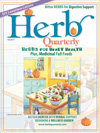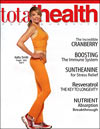Yale research shows that Reiki helps heart attack patients
editor's note: This article originally appeared on Pamela Miles' blog, Reiki Central, On September 18, 2010. We are re-publishing it here with Pamela Miles' permission.
Effects of Reiki on Autonomic Activity Early After Acute Coronary Syndrome. Rachel S.C. Friedman, Matthew M. Burg, Pamela Miles, Forrester Lee, and Rachel Lampert J. Am. Coll. Cardiol. 2010;56;995-996.
In the above study, published in one of the most prestitigious peer-reviewed conventional medical journals, patients who received a 20-minute Reiki treatment within three days after suffering a heart attack showed improved mood and heart rate variability (HRV). Let’s take a look at what this means in nontechnical language.
Reiki treatment given in an acute cardiac care setting significantly improved mood and HRV within 72 hours after a heart attack.
A heart attack is a stressful event which, like other stressful events, also causes a stress response. A stressed body is less resilient, less able to cope with more stress. This means a patient who has just had a heart attack has a higher risk of having another one. Doctors are well aware of this dangerous cycle, and helping the body recover its resilience is a primary goal in cardiac care.
That’s why standard hospital care after a heart attack includes beta blockers, drugs that help the body recover its resilience. But beta blockers work slowly, and some patients cannot tolerate them.
The Yale researchers wondered if a non-pharmacologic intervention might be just as effective, work faster, safe for all patients–and even help patients feel better?
In the high-tech acute cardiac care setting, why would doctors be interested in patients feeling better? Because subjectively feeling better is known to have objective effects on health. It is well documented that emotional stress negatively affects autonomic nervous system (ANS) function, and therefore heart disease (ANS controls heart rate).
This randomized, controlled study looked at non-invasive, nondrug interventions to help patients recover faster from a heart attack. The study had three arms:
Group 1 (12 patients) rested quietly without interruption.
Group 2 (13 patients) listened to slow tempo, meditative, classical music.
Group 3 (12 patients) received 20-minute Reiki treatment from Reiki-trained staff nurses.
Patients were measured initially for baseline, and again after the intervention, and the two sets of measurements were compared. The measurements from all groups were then compared to the others.
The impact of the intervention (rest, music, or Reiki) was measured in two ways, emotional state and heart rate variability (HRV), a physiologic measure that indicates if the patient’s body is recovering from the stress response.
The patients rated themselves on both positive states (happy, relaxed, calm) and negative states (stressed, angry, sad, frustrated, worried, scared, anxious).
Reiki treatment improved all positive emotional states and reduced all negative states. Comparing the three groups, the Reiki group had the most positive changes in emotional state, and the resting control had the least.
Reiki treatment also improved HRV. The benefit shown was comparable to that seen in a study of beta blockers.
Additionally, the study showed that Reiki treatment can be offered in an acute-care setting. This is important. Sometimes interventions are found to be helpful but they are not feasible in a real life care setting. None of the patients experienced any adverse events.
In this study, Reiki treatment significantly improved mood and HRV compared to the resting and music control conditions. Many questions remain unanswered, such as how long does the benefit of a Reiki treatment last?
Much more research is needed. But this is a good start.
































0 Comments:
Post a Comment
<< Home